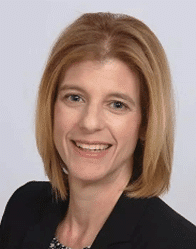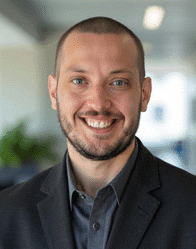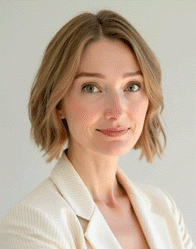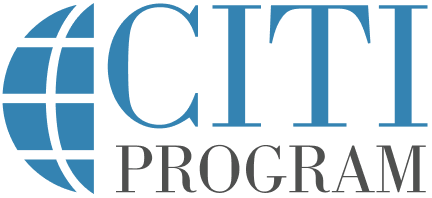Season 3 – Episode 6 – Centering Students Through Undergraduate Research (Part 1)
In this episode, we dive into the power of undergraduate research as a catalyst for student engagement.
Podcast Chapters
Click to expand/collapse
To easily navigate through our podcast, simply click on the ☰ icon on the player. This will take you straight to the chapter timestamps, allowing you to jump to specific segments and enjoy the parts you’re most interested in.
- Introduction and Episode Theme (00:00:06) Host introduces the podcast, this season’s theme, and today’s focus on undergraduate research.
- Alexa’s Introduction and Podcast Plug (00:00:49) Alexa introduces herself, her role, and mentions her own podcast, “On Research.”
- Welcoming Dr. Lisa Piazza (00:01:25) Dr. Lisa Piazza is welcomed as the guest and briefly introduced.
- Dr. Piazza’s Academic and Career Journey (00:01:46) Dr. Piazza shares her background, from first-generation student to her current role, including key mentors and experiences.
- Transition to UTC and Building the Office (00:07:01) Dr. Piazza describes moving to UTC in 2018 and establishing the Office of Undergraduate Research from scratch.
- Current Role and Office Programs Overview (00:09:22) Dr. Piazza outlines her current responsibilities and gives an overview of the office’s programs and initiatives.
- Work Study and International Research Programs (00:10:32) Details about the work study program, research internships in the UK and Vietnam, and their impact on students.
- Summer Learning Institute and Student Engagement (00:12:47) Explanation of the online summer program created during COVID, its structure, and student engagement activities.
- Conferences and Workshops (00:14:03) Description of the fall virtual conference, spring research conference, and workshops to help students get started in research.
- Mission of Accessibility and Support (00:15:28) Emphasis on making undergraduate research accessible to all students and supporting them throughout the process.
- What Sparked Dr. Piazza’s Interest in Undergraduate Research (00:17:49) Dr. Piazza discusses her personal undergraduate research experience and how it inspired her career path.
- Expanding Research Beyond STEM (00:19:12) Efforts to promote undergraduate research and creative endeavor across all disciplines, not just STEM.
- Impact of Early Engagement in Research (00:20:21) Importance of engaging students in research early and connecting research experience to future career opportunities.
- Ensuring Accessibility for All Students (00:22:44) Strategies to make research opportunities accessible to all students, including outreach and sharing student stories.
- Closing and Teaser for Part Two (00:25:07) Host wraps up the episode, teases part two, and thanks the production team.
Episode Transcript
Click to expand/collapse
Ed Butch: Welcome to On Campus with CITI Program, the podcast where we explore the complexities of the campus experience with higher education experts and researchers. I’m your host, Ed Butch, and I’m thrilled to have you with us today. Before we get started, I want to quickly note that this podcast is for educational purposes only and is not designed to provide legal advice or guidance. In addition, the views expressed in this podcast are solely those of our guests. Welcome to On campus, as we continue this season’s theme of the engaged university, today’s episode revolves around undergraduate research, and for this episode, I’m also happy to welcome my colleague and host of CITI Programs On Research podcasts, Alexa McClellan. Thanks for joining me Alexa.
Alexa McClellan: Hi, Ed. Thanks so much for having me on today’s episode. So I’m the Associate Director of Research Foundations at CITI Program where I work on developing educational content focused on areas like human subjects research, animal care and use, research ethics and conflicts of interest. As you mentioned, I also host On Research, one of CITI Program’s other podcasts where I get to talk with experts about some of the real world challenges and questions that come up in the research space. If that sounds interesting, I’d love for today’s listeners to check it out, and I think we can include a link in this episode’s notes to that podcast.
Ed Butch: We definitely will include that. Thanks so much for that quick introduction and we’ll get into today’s episode. Today’s guest is Dr. Lisa Piazza, who serves as the executive director for the Office of Undergraduate Research and Creative Endeavor at the University of Tennessee at Chattanooga. Welcome to the pod, Dr. Piazza.
Dr. Lisa Piazza: Thank you. Thank you so much for having me. I’m happy to be here.
Ed Butch: Of course. Wonderful. So before we really jump into the questions and begin, can you just tell us a little bit about yourself and your career as I’m also very intrigued by the creative endeavor part in your title as well?
Dr. Lisa Piazza: Sure. Sure. So I am a first generation college student, and so I pretty much stumbled into my academic trajectory and career. I pretty much flunked out of community college the first time around and then grew up and came back, and when I did return to school, I just loved every minute of it, had really deep engagement with all of my professors and those community college professors were really the ones to help me to get to college finally. And so I did my first two years at a community college and those professors and mentors were so, so important to everything that sort of happened in my career after. I mean, they were willing to stay after class and help me. I just had a wonderful experience there. After I finished my first two years, I transferred to a large research institution in Tampa, Florida, and I’m from Tampa, Florida, and so just explored some different routes and majors and then landed on art history, fell in love with art history, did really well.
I mean, as an undergrad, I was taking graduate seminars and loved every minute of it. And, of course, as a first generation college student, I knew nothing about grad school or the process for moving forward in my academic career. And, again, I had phenomenal faculty mentors that helped me along the way and said, “You’re graduate school material.” And so I had three really phenomenal faculty members that guided me through the process and helped me apply for all these programs. And ultimately, I got into UNC Chapel Hill and studied art history there and really thought that that was going to be my path, my academic path, and potentially my career path. And when I got there, I had a full ride, a TA ship and was really lucky to have that and I just love so much working with the students. That was my favorite part.
And so after I completed my master’s degree, I took some time to think about my next steps and my initial plan was to go on and get a PhD in art history and I stopped, went back home and just took some time to think it over and actually got a part-time job at the school where I did my undergrad and that was a part-time job in the grad school, just learning all the back end sort of administrative and of higher ed and absolutely loved it. Again, there I had outstanding mentors who said, “We have a higher ed leadership PhD program here and I think you should apply.” And so that’s how everything started to come together with the career that I’m in now, I did that, and so that took about five years to complete. Loved every minute of it. I mean, it was a great program and you learned everything from leadership, teaching and learning.
I mean, I got a really good, good experience. I had a phenomenal advisor for my PhD. And at that time, I was working full-time. After the couple of years of working in the grad school temporarily, I actually got a position to help reimagine the office for undergraduate research, and I stayed there for six years while I completed my PhD and just learned a lot, worked with really great folks. I had a lot of leeway to create programming and all kinds of events and workshops for students and faculty. And so I got just a tremendous education during that period. And then in terms of work and career, I mean, it was phenomenal because everything that I was studying, I was able to implement hands-on in my day-to-day job. So that job was everything from working on conferences. So we ran a big undergrad conference on campus every spring and it was like six, 800 students and 100 judges, I mean, a really big event.
So I got that experience, but also just program development, which was really key to what I’m doing now. So let’s see, I graduated in 2017 and I loved my job. I was great in my position and my advisor was, “Okay, so you just went through five years of education to get your PhD and so you now need to start looking for jobs.” And so he was absolutely right and supported me through the whole process, and that’s how I landed at UTC just about a year later in 2018. Everything just felt right about the position. Everybody that I talked with on campus was really excited about undergrad research and very, very interested in what I would bring to the office. So at UTC, the office was somewhat established in 2018 when I came, but I was brought in to basically establish a formal office for undergraduate research, even down to getting the physical office space set up.
There was really nothing in place, and for me that was a tremendous challenge and really, really allowed me to start from scratch and build from the ground up, and that’s what we have done over the last few years. That’s just a little bit of how I got from flunking out of community college to sitting where I am now. I was really lucky. My dissertation was on art majors who completed a Paris Summer program, and most of them were art studio majors, and I was really, really lucky that my dissertation project went really well. I mean, it was just phenomenal, a phenomenal study. And so just between work experience, hands-on work experience and the education part, I mean, I feel that I was very, very well-prepared to go into something like this and start something from the ground up.
Ed Butch: Definitely, I mean, an amazing story and path that you have there, so thank you for sharing that, definitely.
Dr. Lisa Piazza: My pleasure.
Alexa McClellan: Can you tell us a bit more about your current role and the tasks that you handle on a day-to-day basis?
Dr. Lisa Piazza: Yeah. Yeah, so when I came on in the summer of 2018, my first task was to get the physical space up and running, and we did that. At that point in time, I had mostly students helping me, grad students and undergrads, and our student assistants are phenomenal. No full-time staff yet, and so that’s something that we worked towards, but for the first year or two, we established the office. Basically what that meant was building every single program and initiative, all the events, basically building everything from scratch. And so currently, where we are now, we have some really amazing student experiences and I’ll give you a little overview of the many projects that we are involved with. We do have a work study program, which is phenomenal. It’s in its fifth year, and students who have a work study award to work on campus can actually work with a faculty mentor.
And so that’s a year long program, and in the fall semester, we do group seminars with the students to really get them on board. The faculty will come in and do panels and share with students their own journeys and trajectories, and that is always so amazing to sort of see the students light up, especially students who want to go on to PhD and then teach. We also have the summer programs that we work really closely with the study abroad office to develop and to host. And so this year, we have two students doing a research internship at the University of Sheffield in the UK and that’s about an eight-week program and they do hands-on internship and then there’s a research component to that, and actually we just spoke with them last week as a little Zoom check-in and they don’t want to come back.
They’re doing amazing work, really having a great time and traveling, and it’s a really good program. We also partner with the College of Business to run a research internship in Vietnam, and so the dean of the College of Business will travel over to Vietnam with the students and get everybody started and go and visit the internships, the jobs, really phenomenal program. We usually accept about four, six students a year for that one. Again, we had a conversation with them last week and they don’t want to come back. They have two more weeks and they’re having a phenomenal time. I mean, the job experience alone sounds phenomenal. And then what they will do at the end is write a comparative analysis and all of that involves the research component. They’re working with one of the research librarians and they have really amazing projects and I’m really excited to see how all that comes together.
We also have a summer learning institute, and so this is something that came out of COVID when everything shut down for COVID. I was like, what? Students were still wanting to connect and talk and engage, and we were so thankful for that, that I basically built an online six-week program, which I facilitated through Canvas, our learning management tool, and it’s just an opportunity for students when they don’t have the stresses of the academic year to learn about the process, what does it involve, how do you get involved, how do you prepare to have really great conversations with prospective mentors? And that’s a six-week program. We now have a weekly meeting that we do with this particular group, and so students will do activities in Canvas over the six-week period, and then we meet every Wednesday to discuss different aspects of the research process. We do an undergrad researcher panel, which was phenomenal.
We had about six students come in and talk with students about their own journeys. It was phenomenal. Next week is actually the last week of the program, and we’ll have grad students come in and sort of get everybody excited about the next step in their academic journey, which for many of these students will be graduate school, so lots of programming. We also run two conferences, so we have a fall conference that this year will be scheduled in October, but basically that conference is a virtual conference. We have a lot of summer programs. We have several REU programs on campus, and so obviously those students aren’t able to come to an in-person conference, but we run this virtual conference, which is really nice. And then in conjunction with that, we do a student pitches. So 3M thesis competition will be held for grad students and then an elevator pitch competition for the undergrads.
And so that’s a collaboration with the UTC grad school. And then our little office runs our huge spring research conference, and that happens every April, and we just have a wide variety of presenters for that. More and more high schoolers are now presenting their research. It’s so inspiring to see them come in and just with total confidence talk about their projects. We had somewhere around 700 presenters this year. Undergrad students, faculty, graduate students, community, members of the community will come in and present, and that’s a really great opportunity just to tell the story of research at UTC and then to have maybe prospective students come in as well. We had several students and parents stop by this year, and so it’s just a really good way to showcase all of the different research and creative activity that’s happening on campus. And then, of course, we do workshops. We have what we call the getting started in undergrad research workshop, really hands-on just to help students understand the process and how to get involved and the fact that it’s rather easy.
It’s not something that is mysterious or something that is only for a certain segment of the population. Our mission is to help all students know about this opportunity and to also help them if they have the slightest interest in doing this, really have success and get there and support them along the way. I think for most students, and that was sort of my issue as well as an undergrad, you just don’t really have that confidence until you go out there and do it. And so a lot of what we do with students has just helped them for those conversations. And so we do a lot, but we’ve got more new programs in the pipeline now that we’re working on, so we try to do as much as we can in terms of engagement and just being out there and letting students and faculty know that we are there for them to support them in any way that they need that support.
Alexa McClellan: That’s such a comprehensive program. Thank you so much explaining it to us and letting us know what your office does.
Dr. Lisa Piazza: Absolutely.
Ed Butch: Yeah, lots of great stuff going on there, that’s for sure. I just have a quick question though in terms of it seems to me anyway to be a very interesting niche area to get into really focusing on undergraduate research. So what really sparked that interest? Was it that first job that you had or what really got you into this area?
Dr. Lisa Piazza: Yeah, so I would say as an undergrad student, I was introduced to undergrad research, so I did a really cool project in special collections in the library and just working with these medieval manuscripts and it was the best thing because it was connected to a seminar class, and so the whole class was getting ready for this exhibit that we were going to do at the end of the semester. And, for me, that experience really ignited everything. And so I understood sort of the connection between what I was doing with the research, which was gaining these skills that I would definitely need for grad school and then that connection to the coursework. And, for me, I understood right away, oh, those things, that’s a really nice combination rather than just getting As and everything, that’s great, but it’s just not enough. And so that’s what really sparked it.
Of course, when I got into the work, in that first job, then there was the opportunity to expand on some ideas that I had and really try to showcase for students, and that’s something that we’re always working on is the messaging and how to get students involved so that they can say, this is actually something that I can do. Undergraduate research traditionally has been sort of focused on STEM, students in the lab doing that kind of work. And what I tried to do at my previous institution and here is really show that undergrad research creative endeavor happens in every discipline. It might look really different in art history versus biology, but research is really happening everywhere. That’s really why I wanted to get involved with the business in Vietnam program to show what research looks like in business, and it’s all about research in terms of business and business projects.
Ed Butch: Great, thank you.
Alexa McClellan: Lisa, you’ve talked about impact a little bit, but can you talk a bit more about what it is about research that really engages students, especially early on in their college experience?
Dr. Lisa Piazza: Yeah, and that’s a really important point. Again, traditionally this type of experience was really reserved for junior, senior level students, and we have found over years of research and trying things out that you really have to engage students from day one. And even if that is just engagement about the process and what it looks like and building community through that engagement, that is sort of where we are now and where I want to be through this work that we do. Just talking with students, what we do with incoming students and first year students is just really keep them engaged, come to a workshop. Let’s talk about what this might look like for you. Really, really important to start that engagement early.
And the way that we market undergrad research now, much more now is this connection to the workforce, this connection to if you do this at any point in your undergrad career, you are actually going to be able to sell a really strong set of skills to a med school, grad school, a future employer. So making that really strong connection that doing undergraduate research is really going to help you tell that story of what you did as an undergrad, what you were able to contribute, and the fact that you can move a business forward if it’s employment sort of situation, or be really competitive for grad school. So that’s how we frame getting involved in undergrad research.
Ed Butch: So you mentioned getting that messaging out there, the marketing, and one of the things that I really saw when I was working on campuses was that a lot of times research opportunities, especially undergraduate research opportunities, are often given to those or really promoted to those that are high achievers or an honors programs and things like that. So from an accessibility standpoint, how do we really ensure that those opportunities are accessible to all students?
Dr. Lisa Piazza: Yeah. So the work study program that I talked about earlier, that’s a really good example of getting students engaged wherever they are. So this particular program is we do a special invitation to students who hold these awards, and these are students who are general population students. Some it’s their very first semester, first year in college, all demographics. What we try to do is we try to be as welcoming as possible to the general population and just sharing student stories about how they got involved with undergraduate research goes a very long way to getting students to, again, think about the opportunity to perhaps do this. So what we do over the course of the academic year is we will do these class visits and I’ll bring students who are doing undergrad research and what we find is when students talk to other students about their experiences and they share their stories, we’re getting students to come back and talk with us, set up consultations to talk about how they can get involved.
One of the Sheffield students, that’s exactly what happened. We went to one of her classes to talk about getting involved with research, and a lot of students in the class were like, “I didn’t even know about this. I didn’t know it was an opportunity, and I certainly didn’t realize that I could do this.” So we had a couple of students actually out of that one class that took the next step once they understood that this was a service and a support mechanism for any student. Regardless of your discipline, your year of study, your background, where you’re coming from, it is really an opportunity that’s open to all students. There’s a little bit of a strategy to be successful and get in there and have great conversations with faculty so that they will bring you in. And that’s what we try to do with students through our workshops and consultations.
Ed Butch: Stay tuned for part two of our conversation with Dr. Lisa Piazza as we continue to delve into the topic of undergraduate research. I invite all of our listeners to visit citiprogram.org to learn more about our courses and webinars on research ethics, compliance, and higher education. I look forward to bringing you more expert guests to discuss what’s happening on campus. Special thanks to our line producer, Evelyn Fornell, production and distribution support provided by Raymond Longaray and Megan Stuart.
How to Listen and Subscribe to the Podcast
You can find On Campus with CITI Program available from several of the most popular podcast services. Subscribe on your favorite platform to receive updates when episodes are newly released. You can also subscribe to this podcast, by pasting “https://feeds.buzzsprout.com/1896915.rss” into your your podcast apps.
Recent Episodes
-
- Season 3 Episode 5: Professional Development: A Conversation about Career Transitions
- Season 3 Episode 4: From Dorms to Communities: Fostering Belonging Where Students Live
- Season 3 Episode 3: Learning Beyond the Classroom: Community Engagement in Action
- Season 3 Episode 2: Human-Centered Learning: The Power of Design Thinking in Higher Ed
Meet the Guest

Lisa Piazza, PhD – University of Tennessee at Chattanooga
Dr. Lisa M. Piazza is the executive director for undergraduate research at the University of Tennessee at Chattanooga. In this role, she develops intentional undergraduate research programs and initiatives to support student success, and she promotes the benefits of undergraduate research engagement within the campus community and beyond.
Meet the Host

Ed Butch, Host, On Campus Podcast – CITI Program
Ed Butch is the host of the CITI Program’s higher education podcast and the Assistant Director of Content and Education at CITI Program. He focuses on developing content related to higher education policy, compliance, research, and student affairs.
Meet the Guest Co-Host

Alexa McClellan, MA, Host, On Research Podcast – CITI Program
Alexa McClellan is the host of CITI Program’s On Research Podcast. She is the Associate Director of Research Foundations at CITI Program. Alexa focuses on developing content related to academic and clinical research compliance, including human subjects research, animal care and use, responsible conduct of research, and conflict of interests. She has over 17 years of experience working in research administration in higher education.













